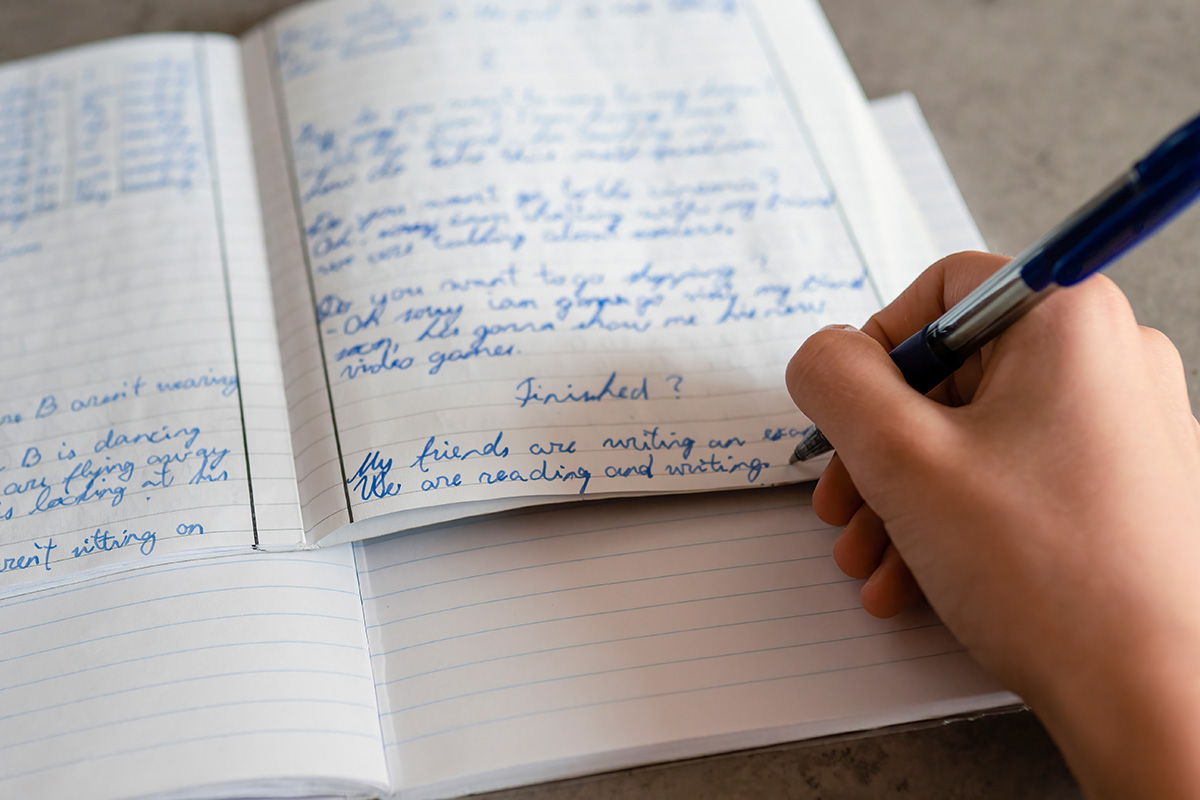Hello Computer! You have my Handwriting
May 11by Ruhamah Ifere
I am writing this from both a research and personal perspective based on recent happenings. I attempted to draft an article using the pen and what sight I beheld! I wondered aloud if I was being chased with a cutlass or if a bomb had detonated close by. Whatever the case, I was prepared to get to the root of this matter.
The Internet is divided on the argument between Handwritten notes and the use of digital devices for note taking. One study by the American Psychological Association noted that people who write by hand often retain information better and engage more deeply with the material, but the speed of typing has created a shift in how often we engage in handwriting tasks and seem to be better for encoding information. On the other hand, typed notes allow you to type at a much faster rate thereby making it much more efficient for recording information.
Why do handwritten notes seem to be better for encoding information than typed notes?
There are two explanations for this:
- Level of processing: Handwritten notes seem to recruit more elaborate and deeper processing than typed notes. This is because to generate handwritten notes, students tend to paraphrase more which makes the information more meaningful to them. For example, students may activate more prior knowledge to paraphrase lecture content when putting thought to paper whereas typing invites more verbatim transcription without further elaboration of the content – because you can type faster than you can write by hand.
- Images: Handwritten notes contain more drawings and images than typed notes. Thus, producing notes by hand capitalizes on dual coding processes (i.e. enriching learning by combining visuals and words) which are conducive for memory retention and comprehension.
What Can You Do About It?
SPE RULES
- Slow Down: If you’re trying to write more legibly, consciously slow your handwriting down. Think of it like training a muscle. When you type quickly, you’re not thinking about precision—when you write, you might need to give your hand a little more time and effort to form the letters.
- Practice: Like anything, practice can help. You could spend some time writing by hand more often, even in small bursts, to re-engage the muscle memory and focus on the fluidity and precision of handwriting.
- Ergonomics: Pay attention to how you sit and hold your pen. Good posture and grip can reduce strain on your hand and improve your writing.
The key here is balance to maintain and improve legibility and cognitive skills, while recognising that we live in a fast-paced world.






